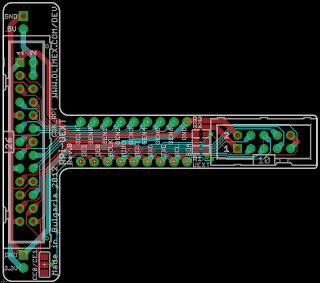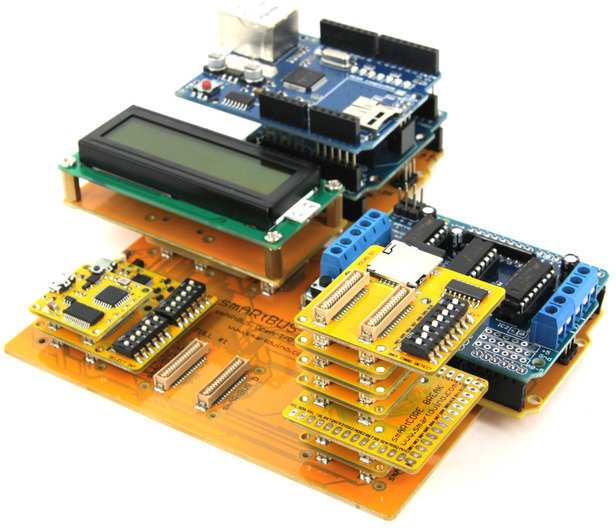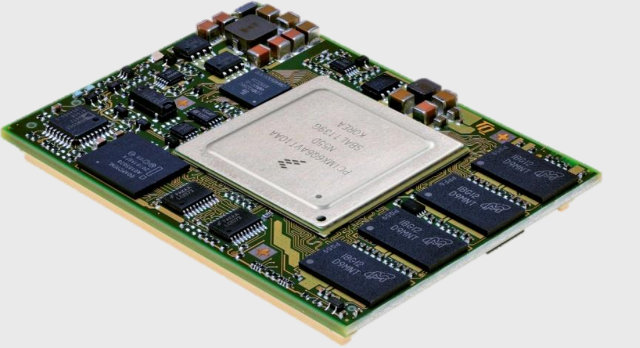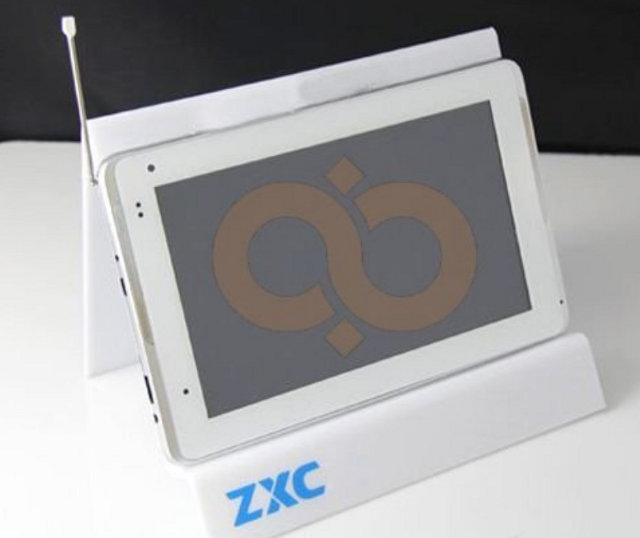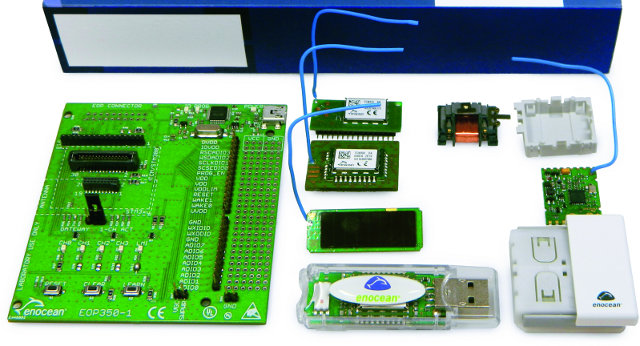Black Friday is the day following Thanks giving in the USA, and is considered the beginning of the Christmas shopping season. Although Black Friday is very much US centric, online shopping may also to access those deals anywhere in the world. 20% discount will be available on ISEE IGEPv2 NO WIFI board, as well as IGEP COMs & EXPANSIONS boards. This is the only development board I’ve found to have a deal for black Friday. Focalprice has a page dedicated to Black Friday with discounts between 11 to 21% for smartphones, tablets, and all sorts of accessories, including the AMPE 10 tablet that will sell for $180.90. There’s also a 6% discount coupon (12TKS6OFF) valid between the 22nd and 25th. Pandawill has sales with up 10% discount between the 22nd and 25th of November. Dealextreme does not have deals, but instead a Black Friday lottery. If you order for over […]
AMLogic Releases U-Boot and Updated Linux Kernel Source Code
AMLogic released kernel 3.0.8 source code for AML8726-MX a few months ago, and yesterday they provided an updated tarballs with the kernel, and for the first time, AFAIK, released the source code for U-Boot. There are 4 new files apparently generated from the (internal) git repository in AMLogic: common-2012-11-20-git-b687495906.tar.gz (108M) – This is the same kernel 3.0.8 release has last time, but with updated code. m1-kernel-android-2012-11-20-git-5d0f6b8e93.tar.gz (103M) – This looks like an older kernel 2.6 for AML8726-M1 only. uboot-master-2012-11-20-git-9b50e9a295.tar.gz (16M) – U-Boot 2010.06 possibly to use with the older 2.6 kernel. Only for M1 & M3 platforms. uboot-next-2012-11-20-git-b0e532795a.tar.gz (40M) – U-Boot 2011.03 for use with M3 and M6 platforms. I’ve already explained how to build the kernel in the previous post, so I’ll focus on U-Boot this time. Ubuntu 12.04 arm-linux-gnueabi- toolchain fails to build U-Boot (uboot-next), so you’ll have to install Sourcery toolchain instead: wget http://openlinux.amlogic.com/download/linux/ARM/gnutools/arm-2010q1-188-arm-none-eabi-i686-pc-linux-gnu.tar.bz2 tar xjvf arm-2010q1-188-arm-none-eabi-i686-pc-linux-gnu.tar.bz2 […]
Olimex to Provide $5 Raspberry Pi GPIO to Breadboard & UEXT Adapter
At $25 and $35 is Raspberry Pi is currently the cheapest board you can buy to develop for ARM Linux, however the expansion boards such as the Gertboard ($60) and the recent PiFace Digital ($32) are not as cheap considering the few components they have on board. This is why Olimex has designed a Raspberry Pi GPIO to breadboard & UEXT adapter (RPI-UEXT) which should be available in 2 weeks for 3.95 Euros (~$5). You then just need to add a breadboard for 2.95 Euros (~$3.8 ), which means for just $9 you can start prototyping easily with the Raspberry Pi. The RPI-UEXT adapter (PCB Layout pictures on the right) also features – as the name implies – a UEXT (Universal EXTension) connector which consists of 10 pins which provide power (+3.3V/GND), and access to asynchronous serial I/O, I2C & SPI signals. This connector allows to connect other UEXT modules […]
Jolla Unveils Sailfish OS based on Meego and Sailfish SDK
Last July, a company called Jolly announced it would design, develop and sell smartphones based on the Meego operating system. This is now closer to reality as a demo has been showcased running on Nokia N950, except the operating system is now called Sailfish OS. Internally, Sailfish OS is built on top of the Mer project and Qt. The UI is built with QML and QtQuick and the standard QtMobility APIs are supported. For software development, you’ll need to use a special version of QtCreator. The development flow looks very similar to what you would do to develop applications for Symbian or Harmattan phones. More precisely, the Sailfish SDK consists of QtCreator, a virtualised Mer Platform SDK and Sailfish components. Code is developed in Qt-Creator on the host device, then the code is passed to the virtualised Mer SDK where it compiles inside the Virtual Machine. If you want to […]
smARtDUINO Open System Provides a Low Cost Modular Arduino Platform
smARtDUINO is a new platform design by the former ARDUINO’s manufacturer (Update: This claim appears to be incorrect and a lie) composed of several compact modules and is a fully funded project on Kickstarter (Less than 3 days remain to become a sponsor). The platform is not based on a single processor, architecture or language but, makes use of an universal platform that can be used to connect components originally developed from different companies, technologies and form factors. For example, it is possible to integrate modules, accessories or shields from Arduino, Netduino, ChipKit and even interact with smartphone using an ADK module, without having to use a breadboard and/or soldering. Interoperability is made possible thanks to what they call “smARtBUS Open I/O“, which is a standard for connectors designed after looking at existing (Arduino) platforms on the market. The company opted for 2 solutions composed of 2 connectors: smARtBUS BASIC […]
TQ Group TQMa6X Embedded Modules based on Freescale i.MX6 Processors
TQ Group has recently unveiled several TQMa6X embedded CPU modules that feature Freescale i.MX6 Solo, Dual and Quad processors, targeting screen, multi-touch, and multi-display applications as well as conventional controlling tasks. 3 modules are available: TQMa6S-AA – Single Cortex A9 / 1,2 GHz, 2 GB eMMC Flash, 512 MB DDR3, 64 kB EEPROM, -25°C…+85°C TQMa6D – Dual Cortex A9 / 1,2 GHz, 2 GB eMMC Flash, 512 MB DDR3, 64 kB EEPROM, -25°C…+85°C TQMa6Q – Quad Cortex A9 / 1,2 GHz, 2 GB eMMC Flash, 1 GB DDR3, 64 kB EEPROM, -25°C…+85°C TQMa6X modules share the following specifications: Processor – Freescale MCIMX6 Single/Dual/Quad Cortex A9 up to 1,2 GHz System Memory – Up to 2 GB DDR3 SDRAM Storage – Up to 64 GByte eMMC Flash, EEPROM: 0 / 64 kbit and up to 128 MB NOR-Flash. System interfaces: CAN – 2x FlexCAN ESAI (Enhanced Serial Audio Interface) Ethernet – 1x 10/100/1000 Mbit (IEEE […]
Low Cost Tablets (ZXC Z7) with Built-in 3G Powered by Mediatek MTK8377 Dual Core Processor
Many low cost tablets can only support 3G connectivity via an external 3G USB dongle, and if you are searching for one online, it can be a pain to find because of keyword stuffing. I’ve just discovered one easy way to filter the 3G tablets: Specify Mediatek MTK6575 (Single core Cortex A9) or MTK8377 (dual core Cortex A9) processors during the search as those platforms (always?) include a connectivity combo that provides GSM and 3G support. Media MTK8377 is still very new, but some preliminary tests show its Antutu score is 5626, which is not really wonderful, but still passable for an SoC clocked at 1.2 GHz. As a reference, I’ve seen AMLogic AML8726-MX dual Cortex A9 SoC @ 1.2 GHz having an Antutu score of 5900. The GPU used in MTK8377 is Imagination Technology PowerVR SGX531, which was released 6 years ago. That’s about all I know about the processor […]
EnOcean EDK 350 Developer Kit For Energy Harvesting Wireless Solutions
EnOcean unveiled the EDK 350 developer kit which includes energy harvesting and wireless (RF) modules, and demonstrated the platform at Electronica 2012 on Future Electronics and Farnell booth. The new kit can help OEMs design batteryless applications quickly in a cost-effective manner for building and industry automation, smart homes and machine-to-machine systems. EnOcean EDK 350 Developer Kit includes the following modules: A universal programmer board (EOP 350) TCM 320 (transceiver module) STM 300 (universal wireless sensor module) ECO 200 (mechanical energy converter) PTM 330 (transmitter module for ECO 200) PTM 210/PTM 215 (energy harvesting switch module, PTM 215 includes data encryption function) STM 330 (energy harvesting temperature sensor module) USB 300 (USB wireless gateway) Wireless modules are normally available at frequencies of 315 MHz (for North America and countries following FCC specs) and 868 Mhz (for Europe and countries following R&TTE specs). The EDK 350 developer kit can be extended with […]



